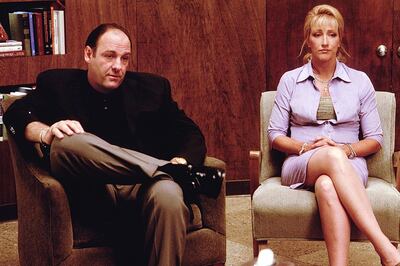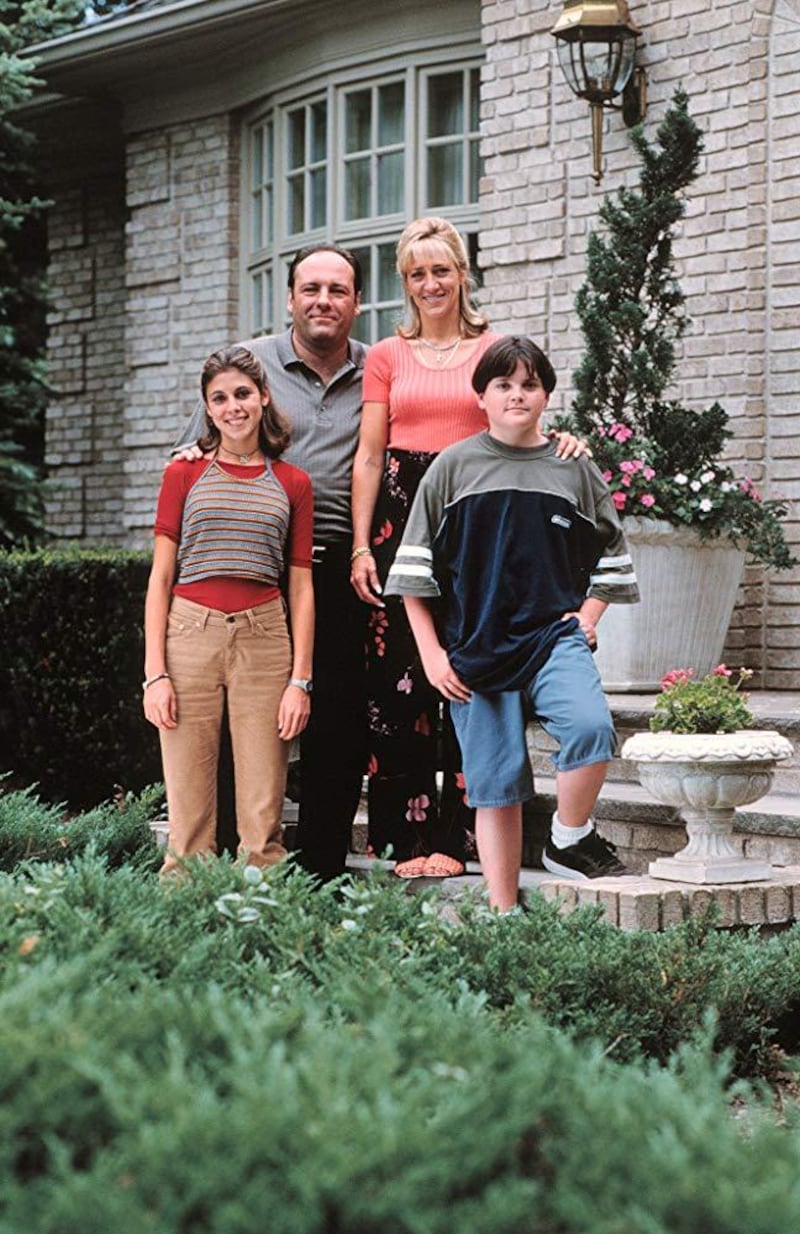Today marks the 20th anniversary of the broadcast of the first episode of HBO's groundbreaking mob drama The Sopranos, and it's no exaggeration to say that television has never been the same since.
In the heady days of the 1990s, there were no streaming services or box-set marathons, and cinema was king. TV was fun, but that was it. It was light entertainment. The only Hollywood actors you would find on your small screen would be those who were promoting their new film on the evening chat-show circuit or those whose career had taken such a nose-dive that they were forced to cheapen themselves with roles in soaps, sitcoms and generic cop dramas, which made up the bulk of the schedule back then.
Enter Tony Soprano
Many TV stars were popular, but they were seen more as celebrities and performers – not serious actors. The shows they appeared in were chintzy affairs with low production values, join-the-dots scripts, canned laughter and too many ad breaks – intermissions where you would find even lower production values.
Then Tony Soprano entered the room and everything changed. James Gandolfini, who played the mob boss, was almost unknown. He had enjoyed bit parts in movies, but nothing major. The moment his bulking frame strode on to the screen, though, you had to wonder why. He filled the shots like a behemoth, yet simultaneously exuded such vulnerability. The audience loved that vulnerability, and they loved his sense of humour, yet they also knew that Tony was a monster.
This was something completely new for TV. A character with real depth and a show around him that had complexities of storyline, psychological drama and production values on par with Hollywood.
Sure, the show was, on the surface, about the nefarious activities of a New Jersey gangster family, but really it was about relationships, about the crazy things going on in Tony's head, about his twisted relationship with his mother. Family Ties this was not.
A game-changer for HBO
Much of the credit for this must also go to the show's creator David Chase and to HBO for running with the idea. Chase, a frustrated TV writer who initially envisaged The Sopranos as a film, was at first resistant to the idea of a serial. But HBO chief Brad Grey, who died last year, was determined, telling Chase "we don't want the kind of stuff the networks are doing".
It was enough to pique Chase's interest. A pilot was produced – and the rest is history. The Sopranos wasn't the first time that a TV channel had experimented with higher production values or budgets, or with vast storylines. But in the past, this had always been on an epic, historical level, with shows such as the HBO-BBC co-production Rome. The Sopranos was a totally different beast. Epic in terms of sheer scale, but utterly personal in terms of focus. If Rome had sought to emulate Ben-Hur, The Sopranos was channelling Hamlet, and did so over a total of six seasons.

The show changed the game for HBO, too. Before The Sopranos, it was just another cable channel, churning out the usual roster of movies and occasional original series – good, but nothing new. After The Sopranos, the channel become the watchword for quality TV, and shows such as The Wire, Boardwalk Empire and Game of Thrones would go on to further cement that reputation.
The Sopranos was swiftly recognised as a game-changer. The press couldn't get enough of it, and the show was nominated for an Emmy for Outstanding Drama Series every year that it ran, winning twice.
A lasting legacy
In 2001, New York's Museum of Modern Art honoured the series when senior film curator Laurence Kardish screened the first two seasons. This was the first time that a US drama series for television had been shown at the museum. Kardish called the show "an extraordinary blend of great psychological insight and social cartography, zany as well as poignant and resonant".
The show also ushered in the era of binge watching. This was cinema-quality entertainment spread over hours, and the birth of the box set ushered in an era where viewing an entire season on DVD proved as popular as watching the original weekly broadcast of the show. Other networks were quickly on the bandwagon to produce their own Sopranos, and a new era of TV was born.
__________________
Read more:
From Veep to American Vandal: a look at the television shows axed in 2018
[ 2018 in film: Netflix triumphs over traditional cinema, and our top picks of the year ]
Netflix picks up Abu Dhabi legal drama show Justice: Qalb Al Adala
__________________
Ironically, by essentially inventing binge-watching, HBO would also create what would go on to be its biggest competitor in the annual awards stampede to this day.
Netflix had launched a year previously, but at that point, the streaming giant was a somewhat less high-tech operation, renting DVDs by mail order. That, as you probably noticed, changed somewhat in the intervening years. So next time you're anxiously watching the on-screen clock tick down to the start of episode 7 of your new favourite show, spare a thought for old Tony, the poor, tortured psychopath who set the ball rolling.





